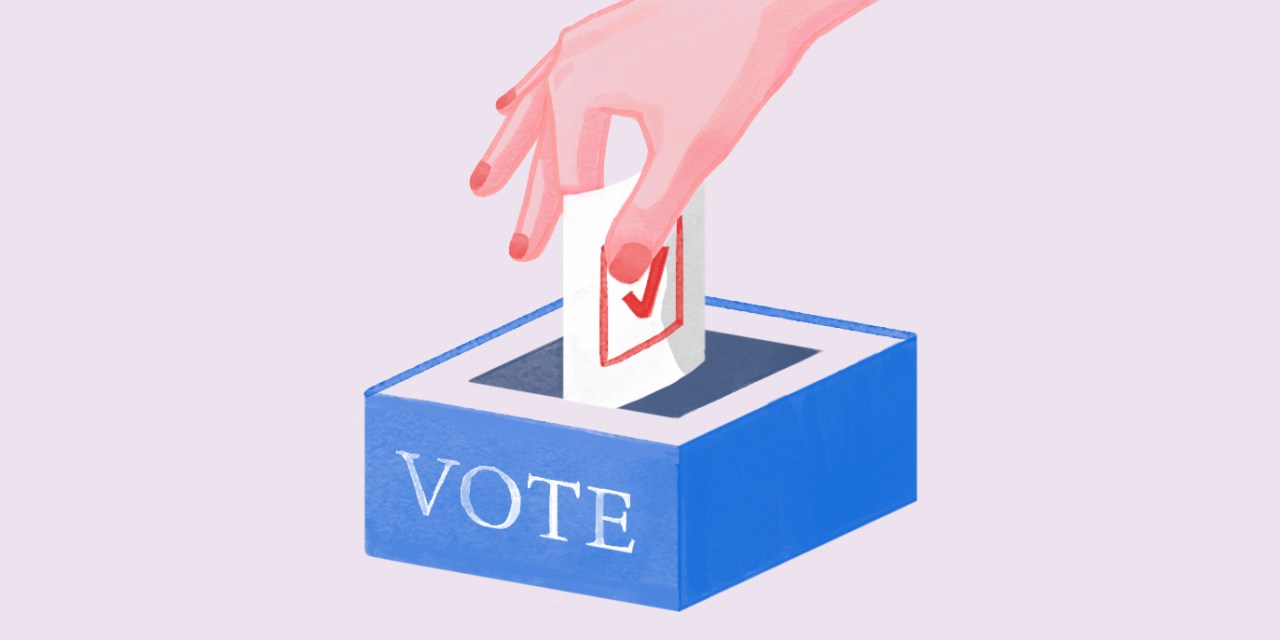How companies are facing midterms as election tensions roil workplaces

Election Day is less than a month away and some employers are already considering how to encourage their workers to vote.
That might mean informing staff on how to register to vote, offering rides to the polls on Nov. 8 , or even giving the full day off vs just a few hours. However, the election season poses broader questions for employers like what role politics should have in the workplace and if it’s meaningful to build a culture of civic engagement. A Society for Human Resource Management study, released this month, found that with the uptick in political discussions in the workplace, one in five U.S. workers have experienced poor treatment by coworkers or peers due to their political views.
The research found that 20% of HR professionals say there is greater political volatility at work than there was three years ago. That means it’s all the more important for employers to be mindful of deciding how to approach politics at work, if at all. However, some employers say that at the minimum it’s the role of every organization to encourage voting.
“It’s not saying who someone should go support,” said Jeb Ory, co-founder of Capitol Canary from Quorum, a provider of solutions around public policy engagement which works with companies like Walmart and Home Depot. “It’s saying, ‘Hey, this is part of your civic duty as an American, it’s a right that is very valuable to have and a lot has gone into protecting this right. Please go exercise that right.’ We want to remove barriers and that’s a very powerful message companies can be sending out right now.”
Ory said it’s about empowering employees and consumers with the information they need to get out to vote. “It’s been a little bit odd that we’re a country that kind of centralizes the ability to be able to have a voice through voting, and yet there are very few company norms that actually make time for it,” said Heidi Brooks, a senior lecturer at Yale School of Management whose expertise is in everyday leadership and associated organizational culture.
The SHRM study found that 82% of workers plan to vote this year. When it comes to whether or not it’s encouraged by an employer, Brooks suggested that companies should decide based on what their organizational culture is.
“Not making time for voting, not encouraging people to do that, sends a message inside and outside of the company about how you get people to show up as engaged citizens both within your organization and beyond,” said Brooks. “The way that we work, or the messages our workplace sends, either reinforce or interrupt our concepts of citizenship.”
There are companies who have been helping get people to the polls. For example, scooter rental company Lime has an initiative this year “Lime to the Polls.” The campaign included three parts: ensuring riders are registered to vote, educating riders on key issues, and providing free rides to and from polling sites for early voting and on Election Day.
“Encouraging people to be engaged and to go vote or to go volunteer at a poll that are part of our civic fabric and is not partisan and is not linked to partisan issues,” said Ory.
According to research from Points of Light, a nonprofit that works with businesses to encourage volunteering and issued a four-part series to help employees get involved in the upcoming election season, 66% of people don’t believe they can make a big change in their community.
“They overlook the powerful change that voting can create,” said Katie Stearns, chief global solutions officer at Points of Light. “Employers really have an opportunity and a responsibility in reminding and educating their employees around voter registration deadlines, when elections are coming up, and also making time available for them to do those things.”
“Encouraging employees to learn about the social and civic issues and co-workers being able to talk about their social and civic engagement perspectives is important dialogue because that listening and learning is what helps all of us change ourselves to create change in our communities to create systems change,” Stearns added.
Capitol Canary also offers civic engagement days where employees can take up to three days off for civic engagement activities. One employee, for example, takes off every year to volunteer to be a poll worker. Other people have used it to do service projects and other initiatives that help benefit the community and support the civic infrastructure of their area. Stearns also suggests employers encourage employees to think about how they’re using their voice, how they might be donating to support causes or change in their community, how they’re using their purchasing power and more.
Offering benefits like that can also be seen as a retention tool, said Ory. It could be especially beneficial in attracting Gen Z workers, who are now entering the workforce and have made it clear they prefer to work at a company who has similar values to them. Encouraging civic engagement, paired with some companies stating their values clearly on political issues, might help an individual choose where they want to work.
Once Election Day rolls around, Ory said at Capitol Canary it won’t be a surprise to see a Slack channel hit with a bunch of pictures of “I voted” stickers like in the past years where people shared photos of their families and pets at the poll.
“From executives on down, it lights up with people sharing their stickers,” said Ory. “I think that is a great way to demonstrate that people are taking this right seriously. It connects people to the nonpartisan celebration of the civic process here in the United States, which is very powerful.”
These issues about politics in the workplace are good opportunities to “lean our way forward,” added Brooks. “This is a leadership issue of how do we live together in a divided world, how do we find each other in a lonely world,” she said. “We may not know all of the answers in an ambiguous future, but the process is to try our best to be aligned and create a future we want to live into.”


